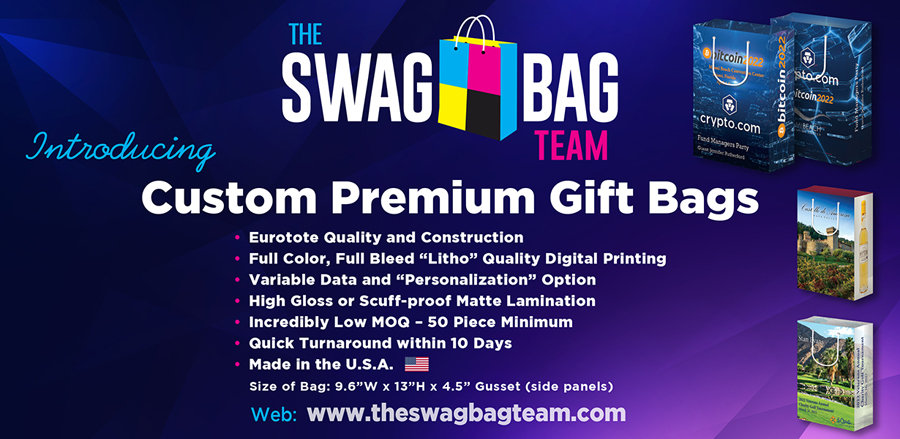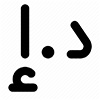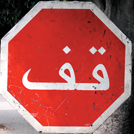| Exhibiting & Event Topics |
EXHIBITOR Magazine |
Find It Marketplace |
EXHIBITOR LIVE |
EXHIBITOR Education Week |
EXHIBITOR eTrak |
CTSM Certification |
EXHIBITOR Insight |
EXHIBITOR Awards |
News Network |
Advertise With Us |

March 2020
Table of Contents
EXHIBITOR Q & A
Sponsoring Versus Hosting
Should we host our own hospitality event or sponsor something already organized by the show?
Sponsoring Versus Hosting
Should we host our own hospitality event or sponsor something already organized by the show?
Small Booths
How can I improve my chances of getting an appreciable return from a small booth?
How can I improve my chances of getting an appreciable return from a small booth?
ASK DAN
Asking for a Raise
How do I ask my boss for a well-deserved pay hike?
Asking for a Raise
How do I ask my boss for a well-deserved pay hike?
EXHIBITING 101
Five Tips for New Builds
Here are important - but often overlooked - items to consider when planning a new exhibit.
Five Tips for New Builds
Here are important - but often overlooked - items to consider when planning a new exhibit.
AMMUNITION
Ideas That Work
Hold the Phone, Auto Focus, Comfort Food, and more.
Ideas That Work
Hold the Phone, Auto Focus, Comfort Food, and more.
FIXING SNAFUS
Taking a Seat
What the boss wants, the boss gets. It didn't matter that it was never a part of our original plan.
Taking a Seat
What the boss wants, the boss gets. It didn't matter that it was never a part of our original plan.
VENUES
Washington State Convention Center
The Washington State Convention Center in Seattle stands in the heart of the Emerald City.
Washington State Convention Center
The Washington State Convention Center in Seattle stands in the heart of the Emerald City.
PORTFOLIO
Presentation Stations
Six examples of theaters that not only drew a crowd but also made a positive, on-brand impression in the process.
Presentation Stations
Six examples of theaters that not only drew a crowd but also made a positive, on-brand impression in the process.
QUIZ
Weight a Minute
Try to guess the weight of these booths that, despite being light on the scales, left a heavy impact on attendees.
Weight a Minute
Try to guess the weight of these booths that, despite being light on the scales, left a heavy impact on attendees.
PHOTO GALLERY
Self Service
National Oilwell Varco Inc. built a booth designed to appeal to clients, prospects, and VIPs on a personal level.
Self Service
National Oilwell Varco Inc. built a booth designed to appeal to clients, prospects, and VIPs on a personal level.
ARCHIVE
By Land and by Sea
1904: An early form of augmented reality with a simulated voyage to Paris debuts at the Louisiana Purchase Exposition.
By Land and by Sea
1904: An early form of augmented reality with a simulated voyage to Paris debuts at the Louisiana Purchase Exposition.
CASE STUDY
Gatorade Drinks Outside the Box
The Gatorade Company appeals to athletic influencers via a mix of gamification and education.
Gatorade Drinks Outside the Box
The Gatorade Company appeals to athletic influencers via a mix of gamification and education.
MANAGEMENT
Myth Buster
EXHIBITOR debunks six common misconceptions held by exhibit-marketing newbies.
Myth Buster
EXHIBITOR debunks six common misconceptions held by exhibit-marketing newbies.
INTERNATIONAL
A Quick Guide to General Data Protection Regulation
We sifted through the 88 pages of GDPR regulations to find the parts that pertain most to exhibitors.
A Quick Guide to General Data Protection Regulation
We sifted through the 88 pages of GDPR regulations to find the parts that pertain most to exhibitors.
PORTFOLIO
Belly Up!
Here are six examples of in-exhibit hospitality bars that offer form, function, and style straight up.
Belly Up!
Here are six examples of in-exhibit hospitality bars that offer form, function, and style straight up.
INSIGHT
Game Changer
Author Jim Gilmore predicts what the future holds for experiential marketing.
Game Changer
Author Jim Gilmore predicts what the future holds for experiential marketing.
GLOBAL
International Exhibiting Guide: Paris
The least you need to know about exhibiting in Paris
International Exhibiting Guide: Paris
The least you need to know about exhibiting in Paris
International Exhibiting Guide: Abu Dhabi
The least you need to know about exhibiting in Abu Dhabi
The least you need to know about exhibiting in Abu Dhabi
International Exhibiting Guide: Buenos Aires
The least you need to know about exhibiting in Buenos Aires
The least you need to know about exhibiting in Buenos Aires
Stay Informed
To be notified of new content from Exhibitor Magazine, please enter your e-mail address:
To be notified of new content from Exhibitor Magazine, please enter your e-mail address:


|





 ➤ Generally speaking, formal English greetings are
appropriate for business conversations in Abu Dhabi.
➤ Generally speaking, formal English greetings are
appropriate for business conversations in Abu Dhabi. ➤ Small booths are not generally expected to provide snacks or beverages to visitors. Most hospitality rooms where attendees are invited to enjoy food and refreshments are found in exhibits larger than 200 square feet.
➤ Small booths are not generally expected to provide snacks or beverages to visitors. Most hospitality rooms where attendees are invited to enjoy food and refreshments are found in exhibits larger than 200 square feet. ➤ Arabic is the official
language of Abu Dhabi, but most business professionals speak English. Still, it is advisable to have an Arabic translator on hand in your exhibit.
➤ Arabic is the official
language of Abu Dhabi, but most business professionals speak English. Still, it is advisable to have an Arabic translator on hand in your exhibit. ➤ Men should generally wear suits at trade shows in the United Arab Emirates.
➤ Men should generally wear suits at trade shows in the United Arab Emirates. ➤ Abu Dhabi National Exhibition Centre (ADNEC,
➤ Abu Dhabi National Exhibition Centre (ADNEC,  ➤ Labor is generally charged by the job rather than the hour, and crews will work well into the night if allowed by the venue and show management.
➤ Labor is generally charged by the job rather than the hour, and crews will work well into the night if allowed by the venue and show management.  ➤ Exhibitors should understand that many observant Muslims set aside time for prayer during exhibiting hours.
➤ Exhibitors should understand that many observant Muslims set aside time for prayer during exhibiting hours.